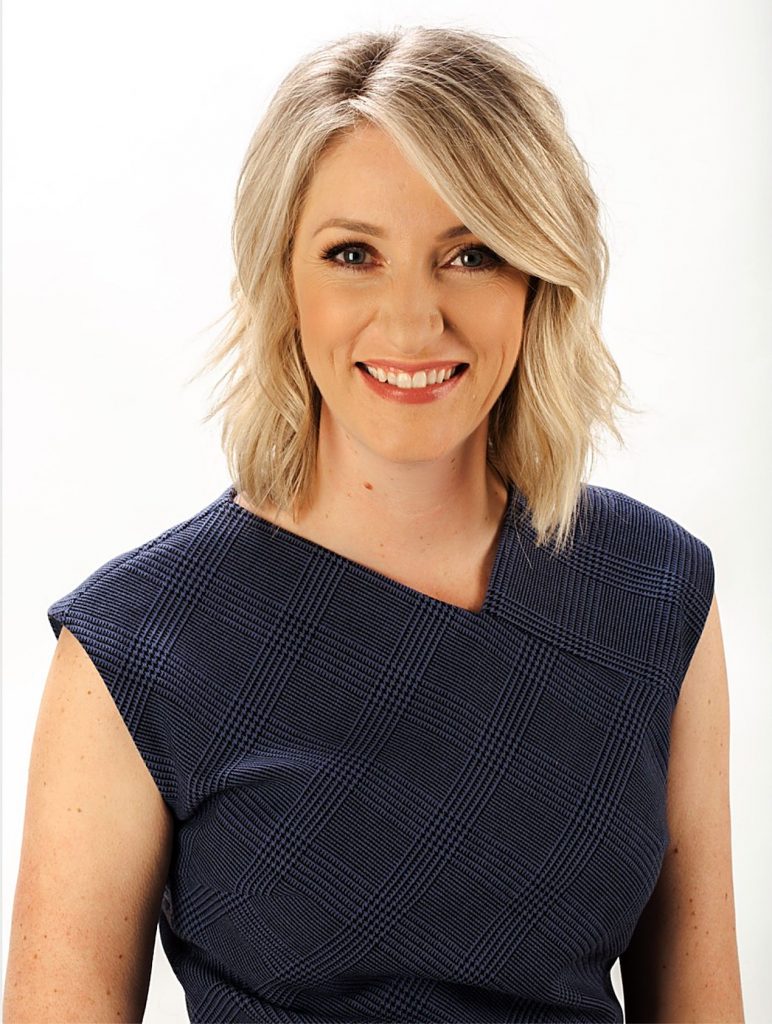Audrey Denney, Doug LaMalfa again battle for 1st Congressional District seat
Special to the Sierra Sun
MEET THE CANDIDATES
Name: Audrey Denney
Age: 35
City of residence: Chico
Occupation: Agricultural educator
Website: http://www.audreyforcongress.com
Name: Doug LaMalfa
Age: 60
City of residence: Richvale
Occupation: Farmer/U.S. Representative
Website: http://www.douglamalfa.com
There was a crowded field for the 1st Congressional District seat up for election during the March primary, with four challengers trying to unseat Republican incumbent Doug LaMalfa in his bid for a fifth term.
On Nov. 3, LaMalfa is betting that he will again beat Audrey Denney, the top vote-getter among the Democrats in that primary. Denney ran against LaMalfa in 2018 and lost by a 10% margin, but the congressman for the first time lost two counties in that election — Nevada and Butte.
Denney
Audrey Denney was exultant late last month after winning a coveted endorsement from Emily’s List, a political action committee that aims to help elect pro-choice Democratic women candidates.
From Denney’s perspective, a nod from a prestigious national PAC means that she is being considered a serious contender.
“This race is finally getting the national attention it deserves,” Denney said. “They only endorse in races they think will win. They chose me and this race to put their name behind, they believe in (my) campaign and they believe we can win this seat in this district. … It’s a big deal.”
According to Denney, her polling numbers now as opposed to a year ago show an upward trend.
“People across the district, across party lines, across gender lines, they are ready for change and willing to vote for someone different,” she said. “Counties that forever have been red, when they hear the message of how I am trying to improve people’s lives, will vote for me.”
Denney sounds bullish on the prospect of unseating Republican Congressman Doug LaMalfa, calling it a “once in a generational opportunity.”
And, she said, this year might be the “most consequential election ever,” citing a global economic collapse, a global pandemic, and California’s intensive wildfire season.
“There’s a lot going on right now,” Denney said. “The world is completely different than before March 3.”
From Denney’s perspective, the pandemic has revealed some distinct truths.
“It showed me the politics in Washington, D.C., are stuck in such entrenched partisanship they can’t do their basic job, to provide relief to their citizens,” she said. “It’s shown us very, very clearly our health care should not be tied to our employment status. I feel like we have seen who has been deemed essential — so often it’s the lowest paid employees … Seeing them being insecure and having to work multiple jobs, it’s been eye opening for all of us.”
Those concerns have always been a key part of her platform, Denney said, as has wildfire reduction and an acknowledgment of climate change.
“So much of it is forest management and fuels reduction, but just to look at that in that lens doesn’t begin to explain it,” she said. “That is part of the equation, just that’s too simplistic, too reductionist. You can’t look at wildfire without talking abut climate change. Everyone agrees climate change is making these wildfires worse. They’re doing damage like we’ve never seen before.”
To just say it’s a fuel management issue is not enough, Denney said.
Pivoting to the pandemic, Denney said rural counties should be treated differently than their urban counterparts.
“For the record. It is imperative our rural counties are allowed to open and do business at a different rate than urban counties,” she said. “And that is what has been happening. Rural counties have gotten variances to open before others, because of good management. Do I have gripes? Absolutely. It’s not perfect. But that is the public health officials’ job to decide, not mine as a citizen. It comes down to, do you believe in science or don’t you? I believe in science.”
Denney said LaMalfa has not done nearly enough to bolster the economic survival of the country, blaming Republican partisanship for delaying the next round of stimulus measures.
“This is ridiculous,” she said. “Congress should not be bought and paid for, they should be working for the people. If they were, you could bet we would have more than $1,200 in our pockets and everyone would have health insurance.”
The solution, Denney said, is systemic change.
“Some is top down, electing leaders who will work for the people,” she said. “But the real change occurs from the bottom up, each of us taking individual action. … We demand better and we show up for our democracy, we hold our elected leaders accountable. As more people demand action, that’s where collective change happens.”
LaMalfa
Congressman Doug LaMalfa, R-Richvale, said he’s running as an incumbent for District 1 to be able to continue the projects he’s been working on, including fire safety, forest management and hardening the energy grid.
LaMalfa said his biggest takeaway from 2020 is “how delicate the balance is, of whether our society has order or chaos.”
“We’ve gone along for so many years with things going, by and large, pretty well, as a society until this year,” he said. “You see what the virus has done — or our overreaction or reaction, what that has done to our society. (Everything) feels foreign and chaotic to many people. All of this combined has shook up the psyche of the country. Reconstructing what was good and solid about our country is pretty difficult right now, because you combine all these things together.”
The level of chaos isn’t good for anyone’s mental health, or people’s morality, LaMalfa said, adding, “There’s so much unrest right now.”
He points to an over-reliance on the internet as both a cause and a symptom.
“When most people started out with social media, they wanted it to be something fun, doggie pictures or what they had for dinner,” he said. “Now, social media is a reflection of everybody’s angst or anger. Look at how much anger is out there. Someone sees somebody not wearing a mask, and loses their mind over it. … Everybody’s nerves are being stepped on, they’re finding ways to be angry at each other.”
LaMalfa cites the debate that has been raging in Nevada County and elsewhere, as to whether restaurants can open or not, saying, “I lean toward trying to find a way to be open. But people are at each others’ throats and draw politics into it. There are a lot of raw nerves, a lot of keyboard warriors. But there are a lot of bigger issues. We have to figure out how to calm down.”
While LaMalfa doesn’t claim to have all the answers, he said it basically comes down to listening to people on a more local level.
“Every county and village has an idea,” he said, adding having a one-size-fits-all mandate from the state makes no sense. “There are 11 counties in this district and there’s hardly any infection in Modoc (County). …. In Nevada County, the eastern part of county is where the cases have been, so why make Grass Valley and Nevada City suffer? That’s where we as the elected representatives need to be listening to data and applying more discretion on a case-by-case basis.”
In the beginning of the pandemic, LaMalfa said, nobody knew how bad it would get, whether it would be “a glorified flu or bubonic plague.” So out of an abundance of caution everyone sheltered in place, beyond what was actually needed, he said.
“As time goes by, though, differing information has been coming out,” LaMalfa said. “People aren’t having a whole lot of faith in the stats and what they’re being told to do — and that’s part of the unrest. People are polarized.”
LaMalfa said it seems clear that the “heavy hand of the state” is trying to clamp down tighter and tighter.
LaMalfa said he has mixed feelings about the federal relief package, citing concerns over the “trillions” being tossed around.
“What does that mean to the overall debt?” he said. “With the economy going in the tank, we have to be mindful. I hope (a proposed) deal is fiscally responsible and is helping the most people to stay afloat. The bottom line is, we have to get through this virus and get people back to doing what they normally do.”
LaMalfa said the key to battling California’s increasing wildfires is forest management, although he acknowledges there is no one perfect fix.
“No one wants to clear cut, but you do need to have fire breaks, pathways to help you get to places, so you can effectively battle them and stop the fire,” he said. “Trees in the wilderness need to be handled scientifically. Forest thinning is not (about) trying to clear-cut, it’s about trying to make it fire safe.”
Liz Kellar is a staff writer for The Union, a sister publication of the Sierra Sun. Contact Liz at 530-477-4236 or by email at lizk@theunion.com.
Support Local Journalism


Support Local Journalism
Readers around Lake Tahoe, Truckee, and beyond make the Sierra Sun's work possible. Your financial contribution supports our efforts to deliver quality, locally relevant journalism.
Now more than ever, your support is critical to help us keep our community informed about the evolving coronavirus pandemic and the impact it is having locally. Every contribution, however large or small, will make a difference.
Your donation will help us continue to cover COVID-19 and our other vital local news.

